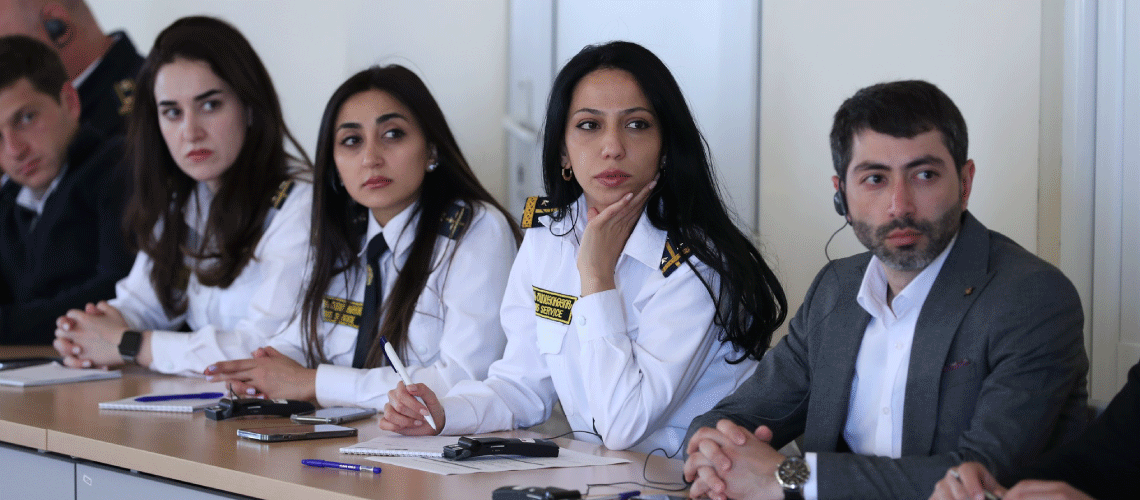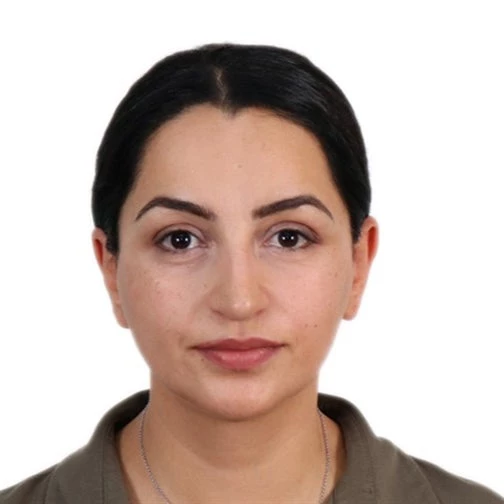 Development partners supporting Armenia’s reform efforts support through the Tax and Customs Administration Modernization (TCAM) project.
Development partners supporting Armenia’s reform efforts support through the Tax and Customs Administration Modernization (TCAM) project.
Dealing with taxes and customs in Armenia may feel like a giant puzzle to citizens and businesses when it comes to compliance and payments. The complex system makes it also challenging for the administration to oversee and pursue non-payments. This is why Armenia has embarked on an overhaul of the tax and customs administration to enhance domestic revenue mobilization and streamline trade procedures, to generate more revenue and help fuel the country’s economy. The World Bank is providing practical support through the Tax and Customs Administration Modernization (TCAM) project.
Planned reforms include introducing electronic filing for taxpayers, and risk-based audits. In parallel, there are other critical areas needing attention, including institutional capacity, taxpayer services, voluntary tax compliance, digitalization, and data quality improvement.
Achievements so far
Strengthening Institutional Capacity:
Easy to follow and clear tax audit menu have been produced for the tax administration to make the audit process more efficient and targeted. The use of evidence-based and clearly justified audit reports has the potential to reduce costly appeals and in turn improve revenue collection. A personal income tax microsimulation model has helped the government understand how complex tax policies affect the economy and taxpayers, thus, supporting the data-driven and smarter policies.
Enhancing Taxpayer Services and Compliance:
Step-by-step taxpayer guidelines for different areas such as leasing operations and construction, have helped simplify and clarify the processes. These guidelines raise awareness, help taxpayers understand and navigate tax rules, and ultimately enhance tax compliance. During the development of the manuals, we reviewed inquiries from taxpayers to identify concerns and clarify legal and regulatory frameworks. Behavioral trials encouraging people to willingly follow tax rules are underway in collaboration with the Central Bank of Armenia and the State Revenue Committee. Our objective is to uncover factors that encourage higher levels of voluntary tax compliance among citizens and businesses, for example, whether adopting non-cash transactions leads to greater transparency in tax reporting. A survey, which will be finalized later in 2023, aims to evaluate the extent to which taxpayers are satisfied with tax administration performance– and changes they would like to see to help improve services.
Advancing Digitalization and ICT Upgrades:
Three new platforms are under development to support the digitalization efforts to make the tax and customs administration more taxpayer centric, simple, and efficient:
- The Single Account of Customs Duties allows the unified management of customs duties, streamlining the process for individuals or businesses involved in international trade and encouraging timely and accurate payment of duties. This also covers recommendations on legal and regulatory changes towards new consolidated operations and service delivery and the basis for development of the new digital system.
- The Stamp Payment Electronic System automates stamp payment accounting and allows liability repayment. It also provides for information exchange regarding other compulsory payments.
- The State Duties Electronic System manages state duty information and payments, automates data exchange with government bodies, integrates with other systems, updates taxpayers’ personal accounts upon registration by authorized bodies, recalculates liabilities, and generates reports. This ensures processes are clear and less time consuming and makes oversight more straightforward.
Looking ahead
Future plans include continuing to enhance digital systems, strengthen customs and tax coordination, and improve data accuracy and analysis using artificial intelligence and machine learning to simplify online services and make them user-friendly.
The World Bank is cooperating closely with the State Revenue Committee and other counterparts from the Armenian Government and has joined forces with development partners under the Governance and Institutions Umbrella Program (G&I UP) and with the British Foreign, Commonwealth & Development Office. The project is also getting support from the World Bank’s Global Tax Program, a powerhouse in tax reform worldwide that manages 78 project activities in over 85 countries.
Learn more about the Global Tax Program (GTP): worldbank.org/en/programs/the-global-tax-program
Learn more about the Governance & Institutions Umbrella Program (G&I UP): worldbank.org/giup




Join the Conversation